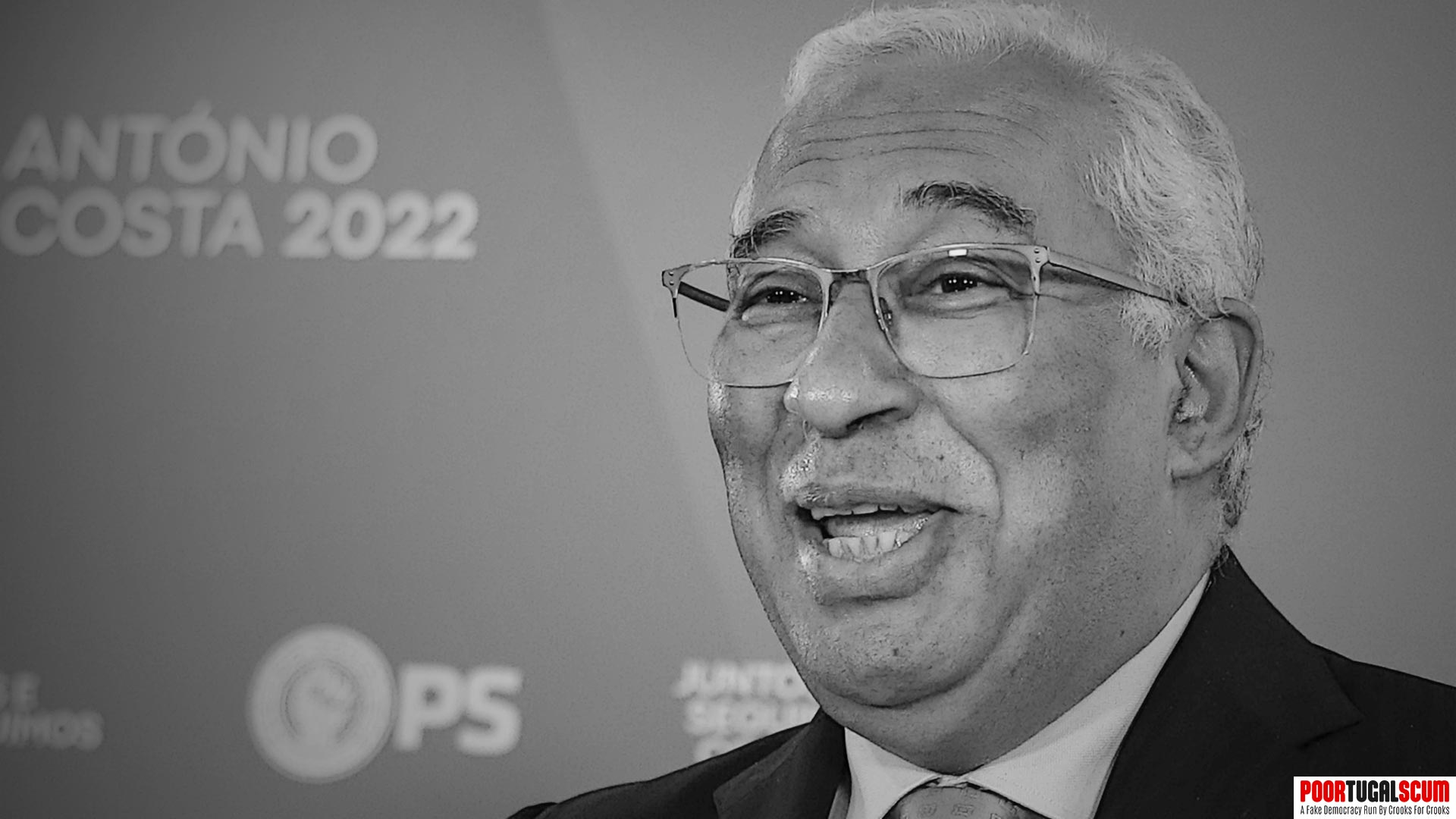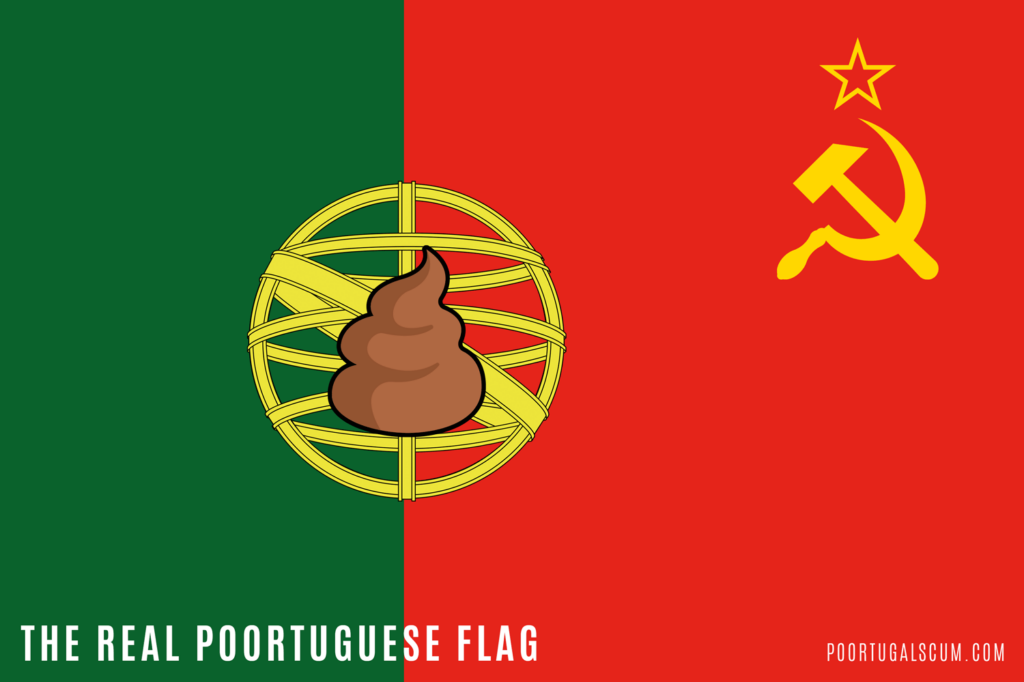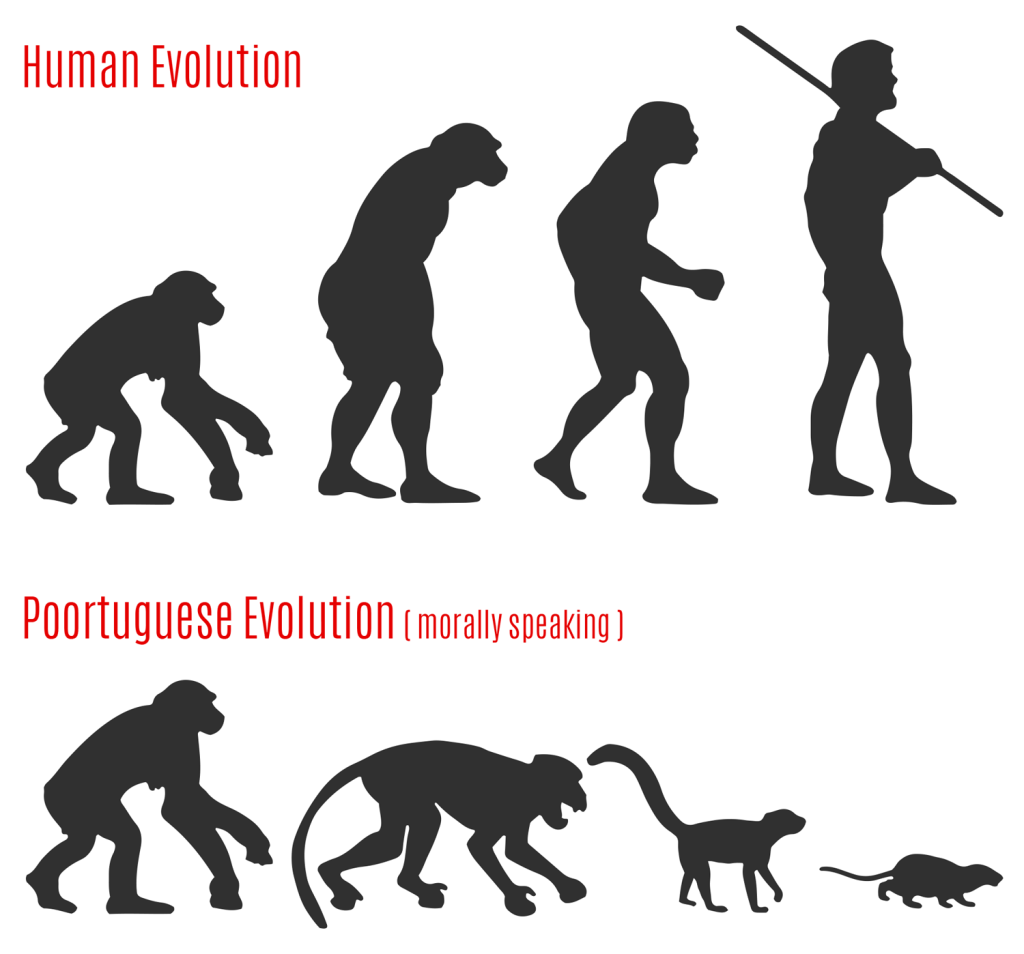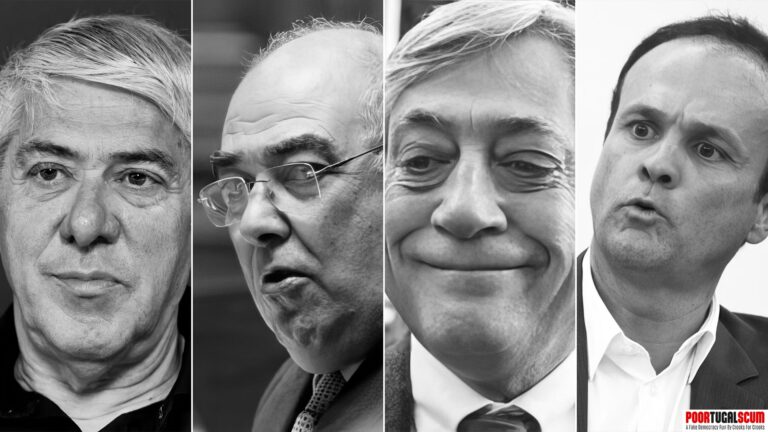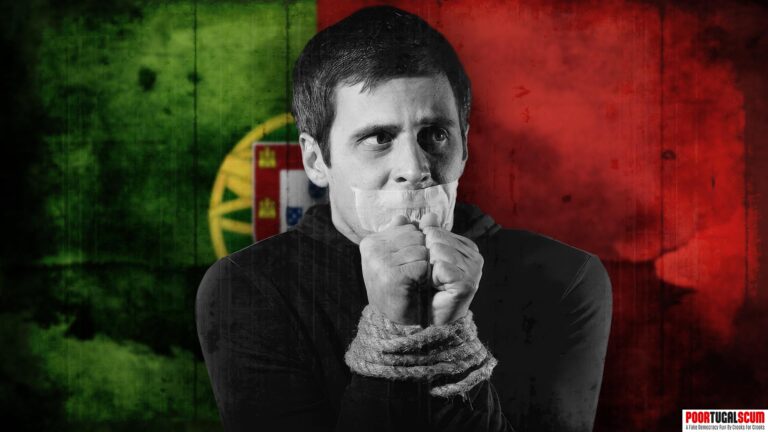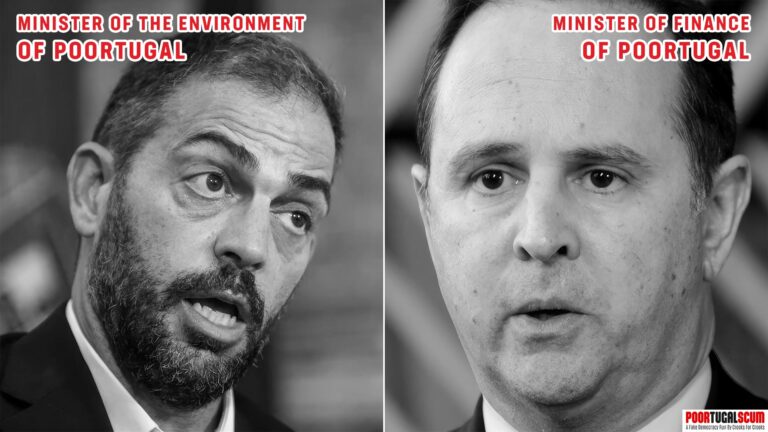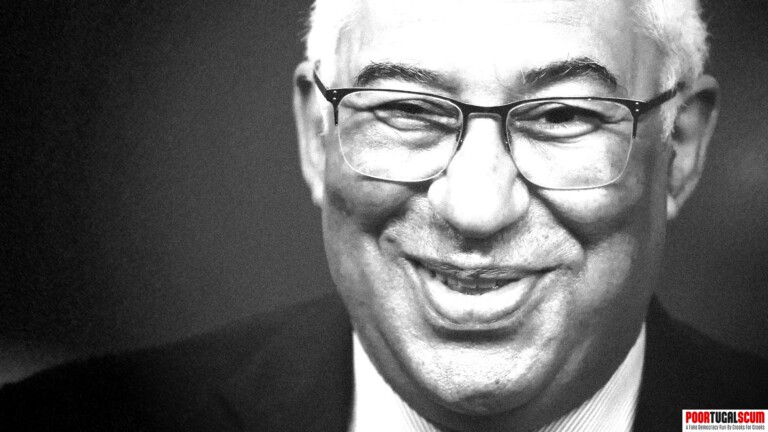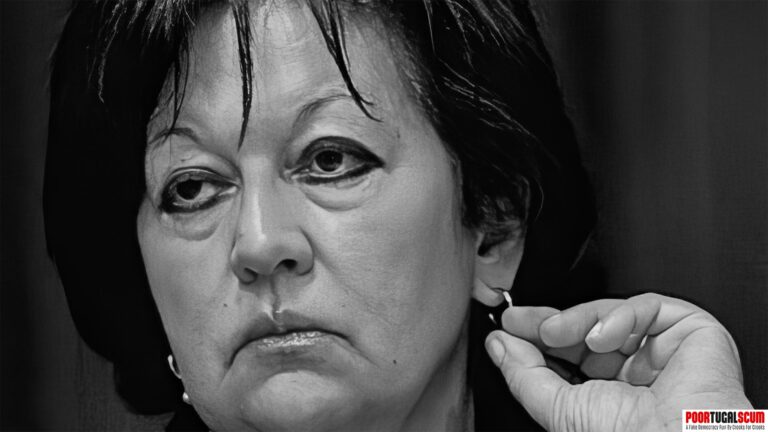Revealing and very interesting chronicle about the responsibility of the current Portuguese Prime Minister (and his “friends”) for the deeply vegetative, corrupt and miserable situation in which Portuguese society has always found itself.
As the author rightly puts it, “Portugal has the stability of cemeteries”.
However, the greatest guilt lies with the Portuguese people themselves, who love the corrupt and hate the honest, which is confirmed time and again when there are Portuguese elections. So, corrupt politicians without character and the majority of the Portuguese are exactly the same in terms of (crooked) mindset.
The following article is a translation (mostly MT). You can find the link to the original website at the end of it.
Who is this man?
Last week I explained in detail the reasons why it is a lie that the country’s economy and governance are leading Portugal towards progress and development. In fact, not many words would be needed because the economy has grown on average by only around 1% during the last quarter of a century, which is half the time we have lived in a formally democratic regime.
During these last twenty-five years, the Socialist Party governed for around twenty years and during the remaining four years Passos Coelho’s PSD had to return Portugal to the economic and financial credibility lost by the bankruptcy of José Sócrates’ PS. In other words, everything that the PS and António Costa may say today about Portugal’s economic progress is not true.
First of all because the Portuguese economy is being overtaken by the progress made by the countries of the former “iron curtain” that began to enter the European Union far behind us and national economic progress in relation to the most developed countries in Europe is so small that, along this path, it will take us seventy or eighty years to reach its current level.
Recently, Prime Minister António Costa boasted about the stability that he says was his personal work over the last seven years.
This is a second lie, because how can a country that does not progress economically, which has some of the highest levels of poverty, with salaries that are among the lowest in Europe, be considered stable?
Or a country, with Education in a permanent teacher war and a National Health System living between strikes and dismissals of its professionals and with more than a million and a half Portuguese people without a family doctor? Or what kind of stability is this where there are fires every year, where Portuguese people die and rural heritage is destroyed? Or what stability is there when the younger and better prepared generation leaves the country in its fight for a better life?
Or what economy can be stable with more than 90% of very small companies, the overwhelming majority in the commerce sector, companies that do not grow and do not export?
Or what stability can exist in a country that barely survives, despite being heavily fueled by the solidarity of other European Union countries?
Yes, the stability of António Costa is the stability of cemeteries, where people live without the hope of better days and where fewer and fewer Portuguese believe in the democratic process to bother voting.
Yes, Portugal lives the stability of corruption and a dormant Justice system that protects the corrupt and the low-downs.
Yes, Portugal is taking great strides, with the stability built by António Costa, towards the tail end of Europe.
It is, therefore, time for the Portuguese to ask themselves who is this man and who is this Prime Minister who throughout these years created and maintained such a narrative of stability? Who is António Costa?
The people in their infinite wisdom say the following: “tell me who you hang out with and I will tell you who you are”. Now António Costa spent many years with José Sócrates and, worse than that, he didn’t notice anything that happened in Portugal during all that time. Neither in “PT”, nor in “BES”, nor in “Caixa Geral de Depósitos”, nor in “Millennium”, nor in our privileged relations with Brazilian corruption, or with countries like Venezuela or Libya. Or, more modernly, with the choice of rulers who are close to him, such as João Galamba, Eduardo Cabrita, Fernando Medina, Pedro Nuno Santos, Vieiras da Silva, father and daughter, who, like others, create or have created the permanent instability of many cases and cases resulting from everything they touched.
Over the years, António Costa has never shown that he has a clear idea about Portugal and its future, he has never defined or accepted a certain strategy for the country’s progress and development and if he has shown any ability to deceive the people in electoral campaigns, the fact is that he lost his first election with Pedro Passos Coelho and became prime minister with the “contraption” kidney coup, which was known to be a strategic contradiction formed by opposing objectives, which could not last. Because it was known that it was not possible to govern a country well by being both for and against the European Union and NATO, or at the same time defending private activity and the nationalization of the economy, or distributing the wealth that the country is unable to produce.
As Prime Minister António Costa is a disruptor by definition. Never have the Justice, Health, Education, Transport and Administration sectors experienced such a lack of organization. Over the last seven years, António Costa has limited himself to throwing more and more money at problems, indifferent to the value of the organization in a world in which knowledge and organizational resources grow endlessly. In a highly disoriented and disorienting way, António Costa launches successive programs for housing, for the railway, for the fight against poverty, for Health, for Education and for fires, programs that are almost always unnecessarily complex, which sometimes advance, sometimes retreat and which are a real scare for anyone who has to put them into practice. Furthermore, with a public administration with fewer and fewer resources and with more and more leaders of political origin, the famous “jobs for the boys”.
Corruption represents the icing on the cake cooked by António Costa. Around corruption António Costa built a wall,
the objective of which is not to combat it, but to send to the courts what António Costa knows the courts cannot resolve.
In fact, he began his government journey by removing Joana Marques Vidal, who at the time was a recognized fighter against corruption, from the Attorney General’s Office.
António Costa does not talk about corruption and for him corruption does not exist or exists all over the world, it doesn’t matter. In the process he threw ethics into oblivion, both republican and others that exist among many Portuguese citizens disgusted with the level of corruption that exists, in the face of the prime minister’s indifference. Just like for a former socialist minister, for António Costa ethics is what comes in the law, which is quite interesting coming from those who make the laws. Without forgetting that the deputies who support António Costa in the approval of many laws were all chosen by him, probably with the same criteria he used to choose Miguel Alves as his deputy secretary of State, or with the criteria that allowed him to confront the President of the Republic in the Galamba case.
Finally, I fear that António Costa, as prime minister, will be a case study that, I am sure, history will not fail to make. Until then, António Costa recommends: hold on.

